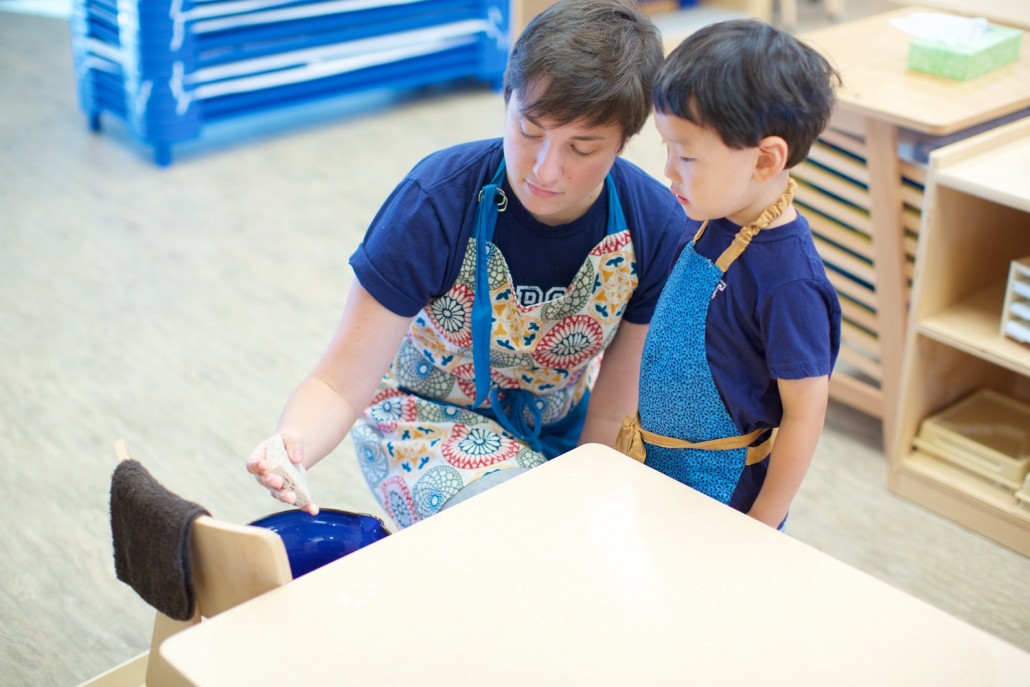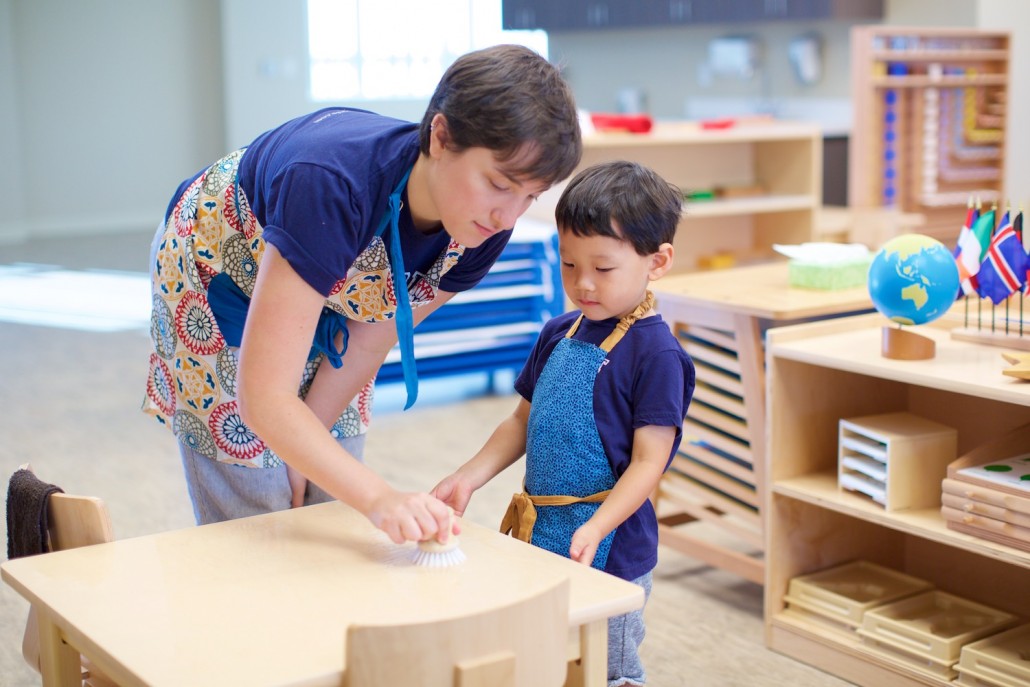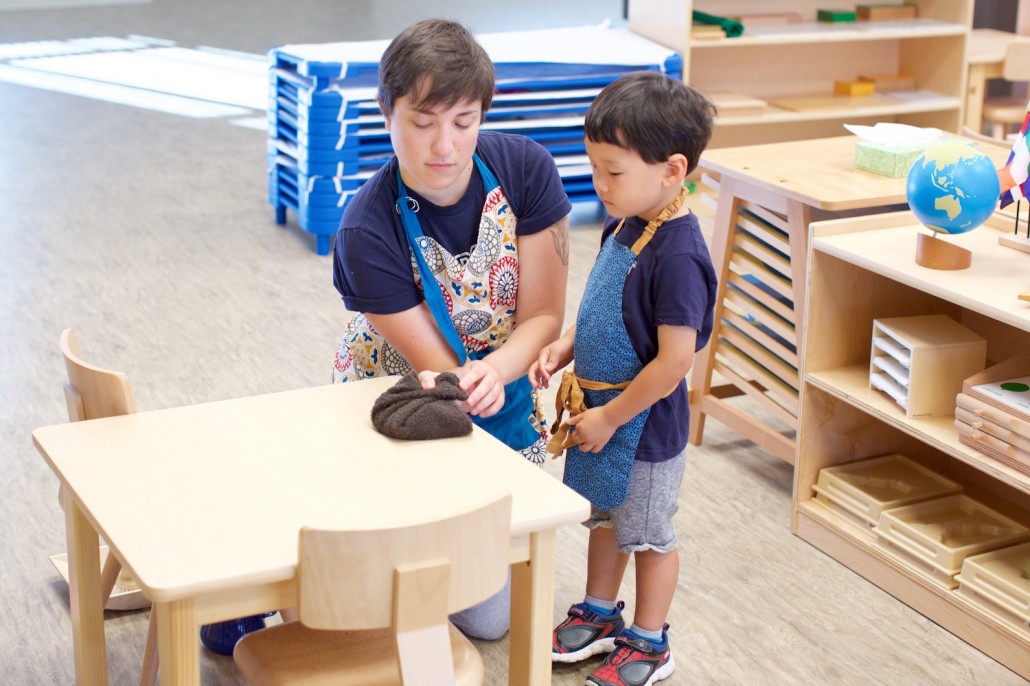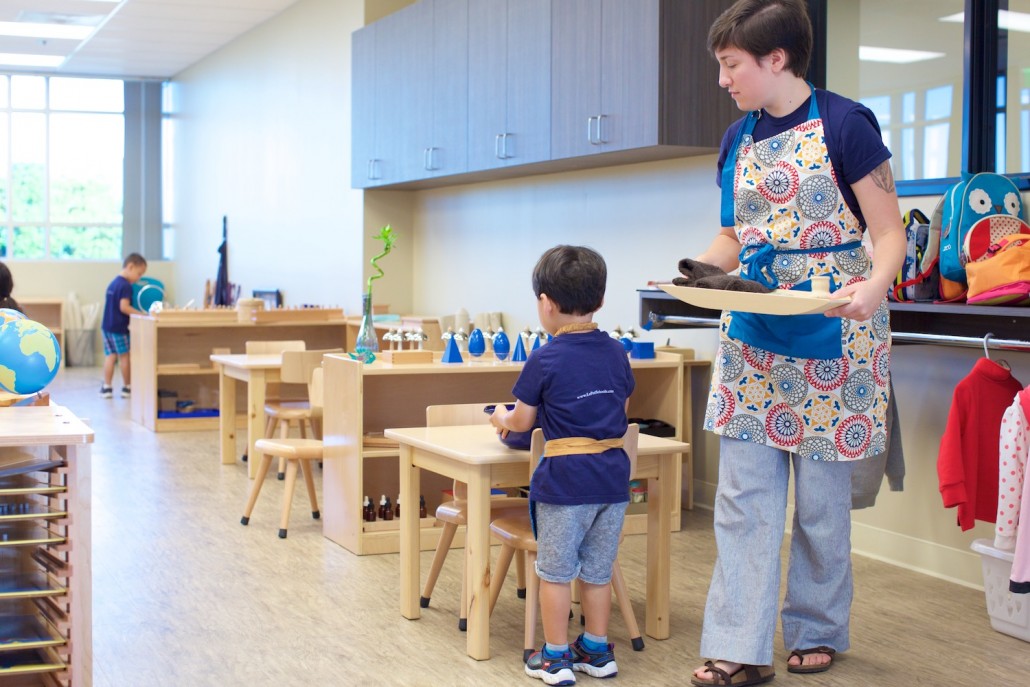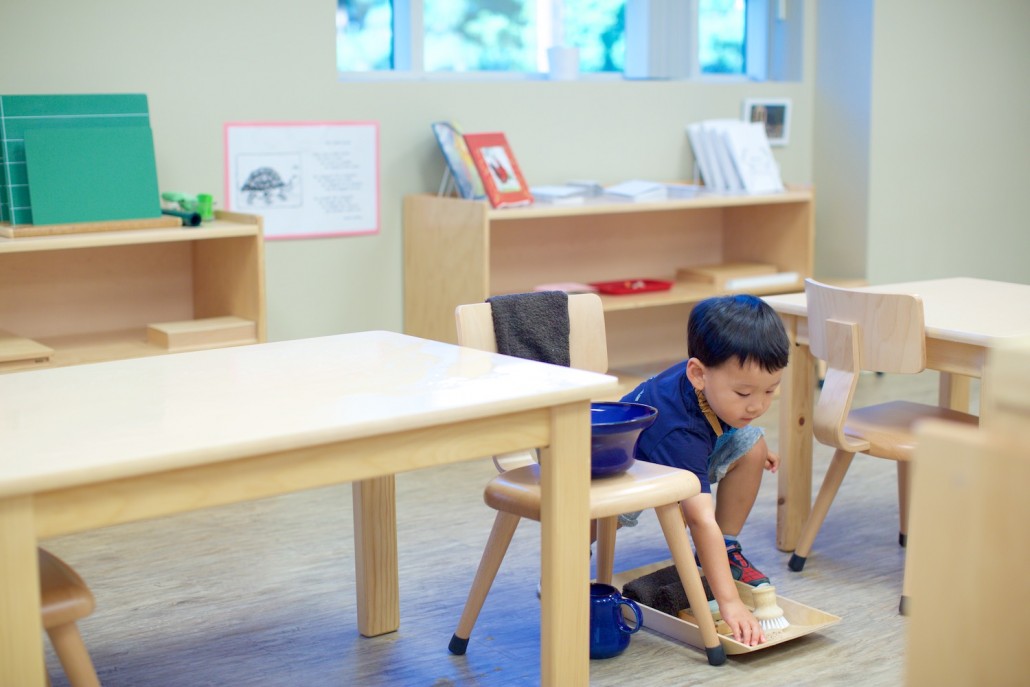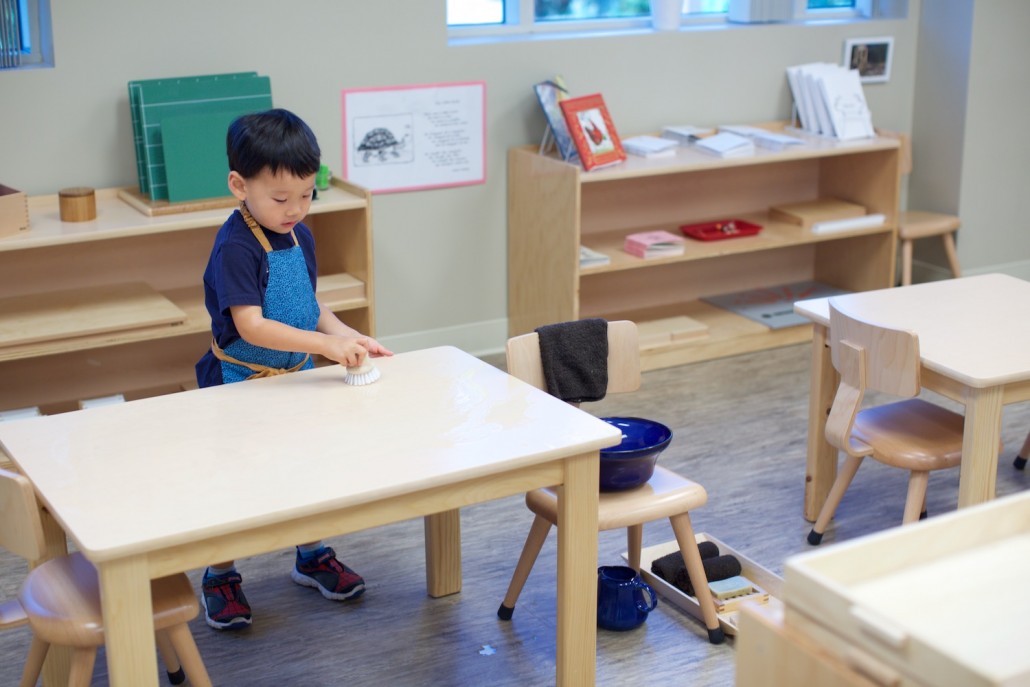The goal of Practical Life is two-fold: Obviously, the children learn to take care of themselves, and delight in being able to perform grown-up tasks well. They become independent of adult help at an age where they are eager to do things for themselves.
The fundamental benefit of Practical Life, however, is even deeper. By practicing these multi-step, everyday activities, our students learn a wide range of important life skills:

Concentration skills. It is in Practical Life that young children first learn to extend their attention span – by repeating activities they find interesting, over and over again, until they have mastered them.
Executive functioning. Our 4-year-olds are able to plan, and then perform, processes with 10 or more steps – and to do them in the correct sequence, and with a high standard of care. They also learn to exercise the mental discipline necessary to master their impulses. For example, as each material exists only once in any given classroom, our students learn to wait their turn while someone else is using a material, and to do so gracefully, without complaining or snatching the work from their peer.
Social skills, including Grace and Courtesy. Throughout their time with us, but especially during Practical Life activities such as preparing, serving and sharing snacks, we coach our children to treat each other kindly and to respect each other’s personal space and work. We show them how to practice social graces such as saying “please” and “thank you”, and to ask for cooperation or help in a respectful manner, including not interrupting others’ conversations. Our students graduate able to conduct themselves with good manners, and to interact maturely and with poise, with peers and adults alike.
Gross motor skills & coordination. In conducting their daily activities — whether it is carrying a pitcher full of water, or balancing the materials on a tray as they walk around their peers’ little tables and mats, whether it is pouring water or drying a porcelain dish – our students learn to exercise and coordinate their large muscles. In taking action, they get immediate feedback: if they are not coordinated, the water will spill, the glass pitcher may fall and break, or the items may slide off the tray. This self-correcting nature of Practical Life activities allows the child to learn from direct feedback – and to see for himself how his skills grow as a result of his dedicated efforts.
Fine motor skills. Picking up small beans with three fingers and stringing them, using tongs to transfer items from one bowl into another, using droppers to transfer water – all these activities help strengthen the hand and prepare it for the later tasks of holding a pencil and writing.
A sense of order. Between the ages of 2 and 3, children actually crave order. Our structured environment meets that need – and by enabling the child to find an activity in its proper place and to return it there, we encourage and solidify this sense of orderliness, much to the child’s later benefit.

A sense of pride in being able to do real, adult activities – and to do them well. Our students learn that they can get better, that practice does lead to improvement over time. They experience the reward of task mastery – and see that they acquire it by applying themselves and practicing. The result is a profound, deeply engrained, pro-work attitude: they enjoy acting in the world, know the pride of a job well done, and feel the blossoming esteem of knowing they are of able body and able mind.

